Janne’s story is about my mother Millicent Halma (nee Hurst) – preferred name Janne who was born in 1938 and died on January 24, 2019. It is written from stories she told me before she died combined with information in documents she wrote at various times during her life. I didn’t always appreciate her hoarding – but I feel blessed that it lead her to keeping so many documents and items that most people discard. Most were found when cleaning the house she lived in after she became sick and one was found on her computer after she died. I cared for her full time for 17 months in our house before she died and never had the strength to tell her that I had found them, read them and kept them.
I’m grateful the words she left behind that allowed me to understand my mum better and how it shaped who I am.
Bridgetown Years
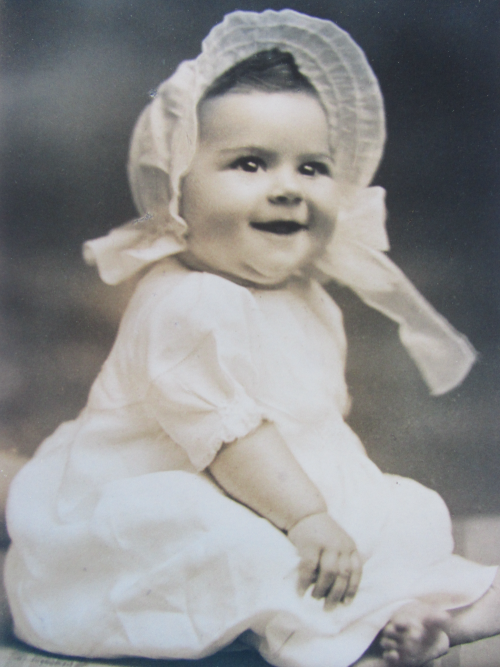
I was born in 1938 and spent the first 9 years of my life growing up on a farm, known as Sunnyhurst, in Bridgetown with my parents and grandparents.
My grandparents, Ern and Mollie Hill, great grandmother Emma Jane Day and great Aunt Millicent Day were part of E.Day and Co. registered by Emma Jane Day and Ern Hill. E. Day and Co owned a series of businesses including a general store and sawmills which were sold as the family developed their farm, Sunnyhurst, which included apple orchards and sheep.
My extended family were involved in numerous local organizations including the Bridgetown local health board, Bridgetown Fruit Grower’s Association, Bridgetown Road Board, Bridgetown Bowling club, Freemasons and Red Cross.
Sunnyhurst
The family built Sunnyhurst Homestead in 1905 which was an impressive homestead for its time. Sunnyhurst had a substantial and impressive garden around the front of the house with views overlooking the valley. My grandparents were considered people of importance in Bridgetown when I was growing up. Bridge parties and tennis parties were often held at Sunnyhurst.
Farm had apples, pears and sheep and a few cows.
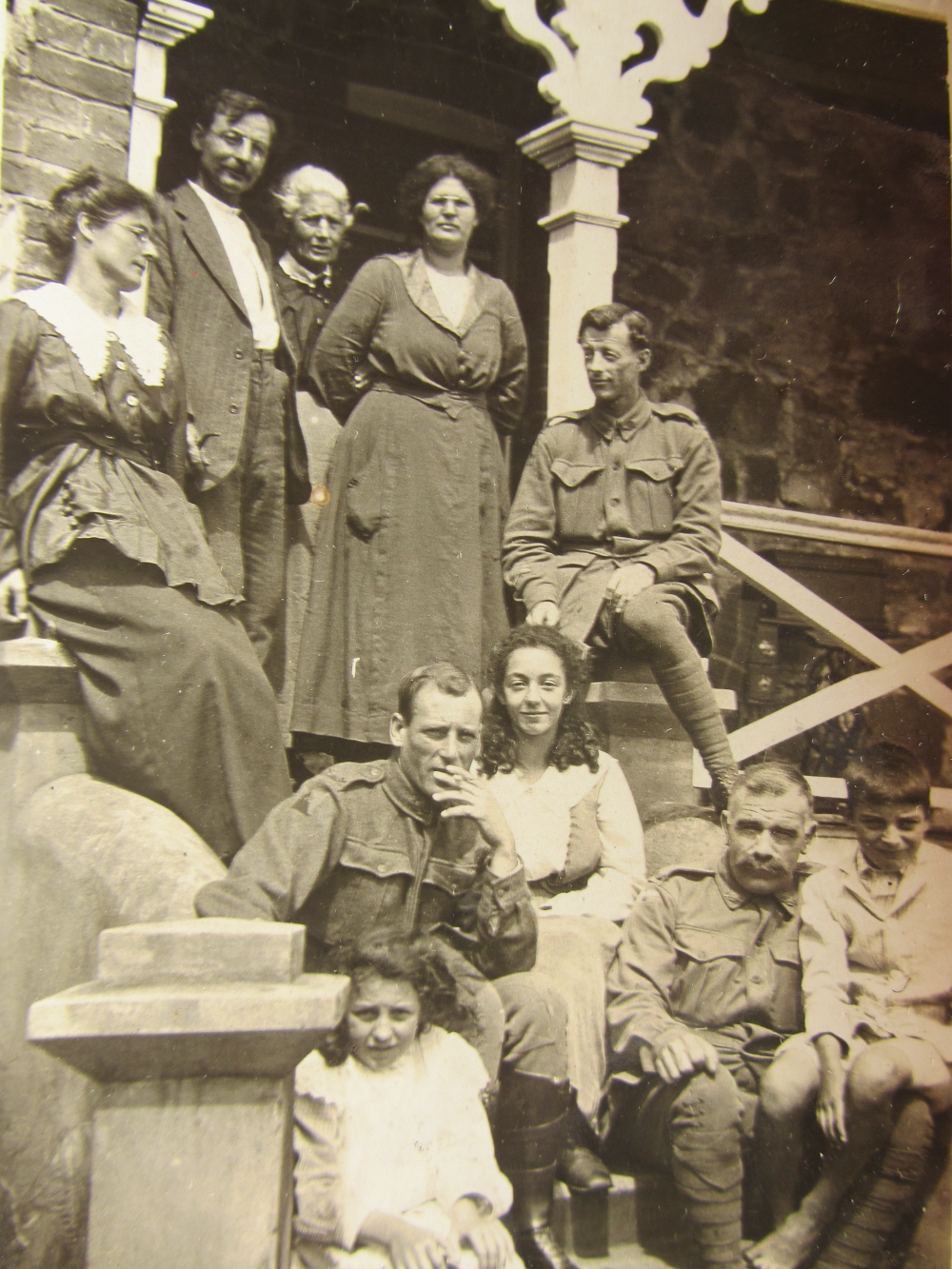
Front Row: ? Clarice Hill, ? Sylvia Hill, Kenneth Hill (sitting on lap) – World War I ~1914
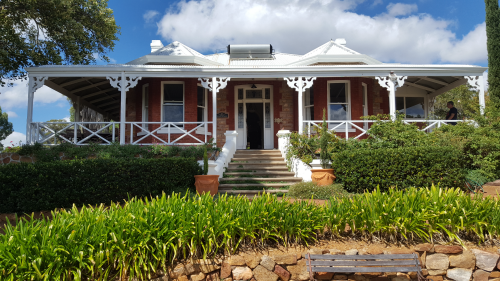
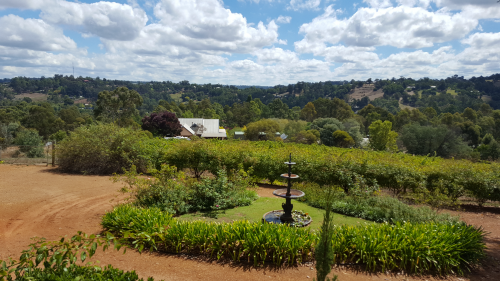
My parents Clarice and Charles Herbert Hurst married on Oct 26, 1936 when my mother Clarice was 33.
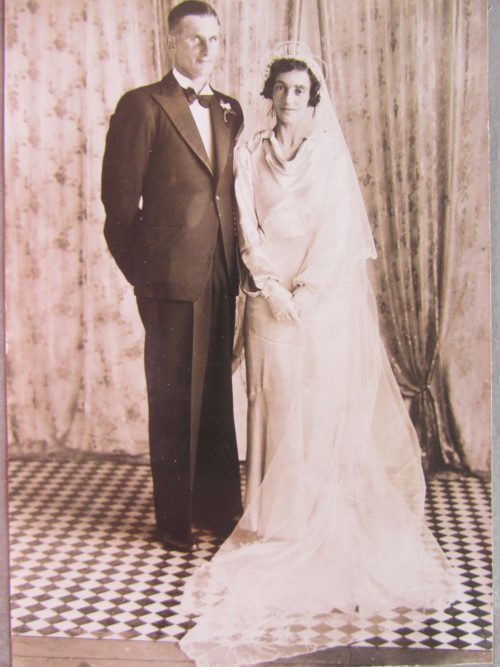
They lived in a small cottage next to the Sunnyhurst Homestead.
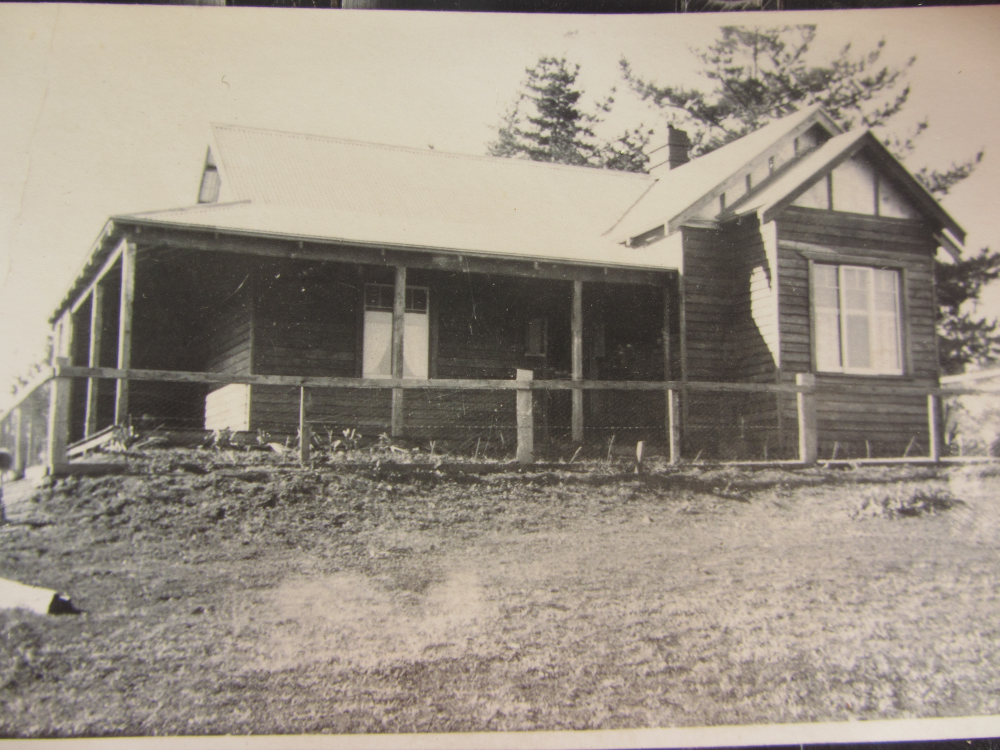
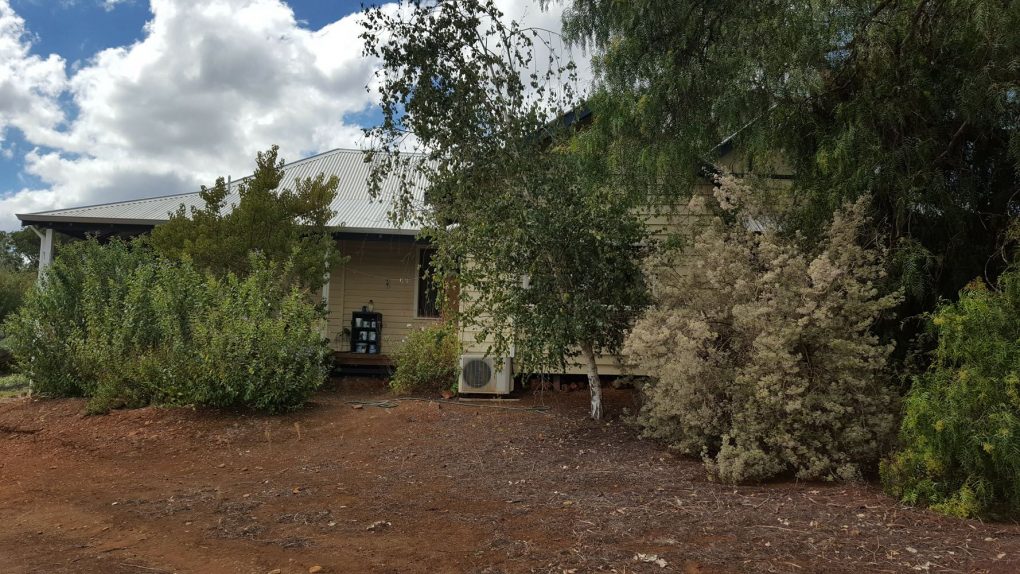
My mother adored my father who wanted a son to carry on the family name. My mother’s first pregnancy with me was when she was 34. She had no understanding of children and proceeded to provided a very hygienic unrealistic environment. Everything was sterilized and children were to be seen but not heard.
Between the age of 2-3 I developed a cyst that resulted in all of my hair being shaved off for surgery. Having my hair shaved off spoiled my doll like image.
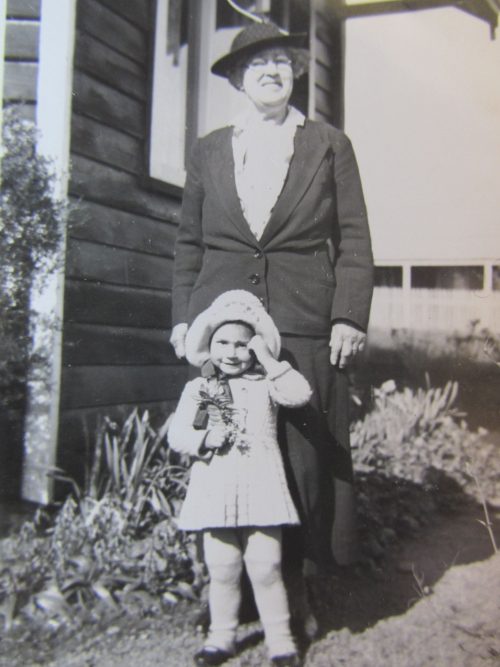
War Years: 1939 to 1945
When World War II started I was just over a year old.
During this time I can remember getting a chocolate Easter egg surrounded with flavored centers coated in chocolate from my Uncle Jack (W.J Day from Albany) when I was about 3 years old. This was the last chocolate we saw during the war period and you couldn’t buy chocolate until long after World War II ended. My parents only gave me a small piece of chocolate because the doctor had put me on a special restricted diet as he thought some of my illnesses were related to diet.
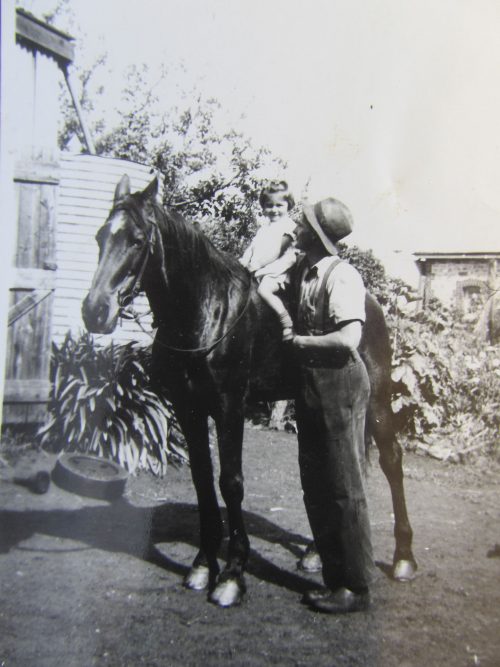
My grandfather Ern Hill would use rations to buy licorice all-sorts which I hated! Ern was a typical self made man. Tough and respected those that stood up to him.
Only a few people like my Grandfather had a radio and I used to listen to the radio with my Grandfather. I remember having to sit very quietly with my Grandfather Ern inside Sunnyhurst listening to the war news on his radio. Other items that were rationed included teas, clothing and fabric. Fabric to make clothes was very hard to obtain.
During the war years petrol was rationed. People who needed to use a lot of fuel such as the doctor had gas producers attached to their car. Headlights were covered partly with black to reduce light for fear the Japanese would see.
Power often went off at night time. It was owned by a private power company. Windows in the houses had black out curtains and you would get a fine if a light could be seen from outside.
We had a twin tub washing machine at Sunnyhurst. Very few people had these types of washing machines in Australia; became more common later in the 1950’s. Ours was a America twin tub made before the war.
I remember my mum getting up early in the mornings to milk cows as part of our war effort was to provide milk and butter.
We had metal lined rooms next to the Smithy (used for shoeing horse) where there were feed chambers to protect the live stock food from pests.
During the war sheep killed on the farm were shared between four families – our family and the two Marshall families. We took turns as to which part of the sheep you go. Sugar and tea were limited during this time. Lots of things disappeared from the menu including lollies, ice cream.
I remember visiting my Grandmother Molly at the Mount Hospital in Perth when it was in Mount Street and outside in the park were trenches for air raids. I saw the Catalina amphibious aircraft in the Swan River.
During the war I used to sew up brown paper bags which were filled with items that the Red Cross sold to raise funds for their war effort. The Red Cross did a range of activities including a penny chain where you added a penny to the path to see how far the chain could stretch along the street. Money raised was used to send parcels to military personnel.
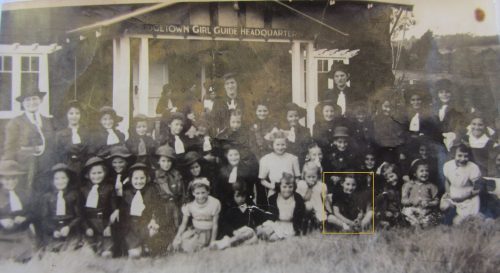
I can remember the celebration at the end of the War at the showgrounds and I remember after the war resentment towards returned soldiers as they got preferential treatment for jobs.
Early schooling
I always felt that I was the unwanted daughter of dysfunctional parents. They were not bad people and possibly never understood the hurt they inflicted. My father was a delightful man, a Peter Pan and my mother was very jealous and possessive of her “Boy” which is what she and his family called my father. My mother tolerated no other woman in his life, even a small daughter as she felt it distracted from her. During my early childhood my mother often spoke of how she wanted to have a boy for my father to carry on the family name.
My mother had many miscarriages before carrying my brother Richard to full term when she was 40 and I was 6. They finally got their son complete with the complications of pyloric stenois and until my brother had surgery no one could upset him or he would vomit. Ric was very sickly and wasn’t expected to survive.
I felt that I became a non-person from this time on in my parents’ eyes and by the time my brother was three my main role was looking after my brother when I was not at school. I didn’t realize but my mum was unwell during this period, gradually deteriorating, later diagnosed with multiple sclerosis. A terrible disease but I believe our relationship was destroyed long before she became sick.
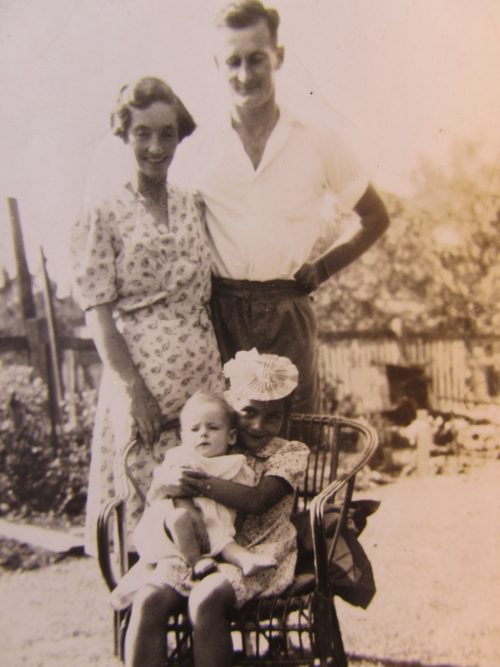
As a consequence of my mother’s pregnancy, and my brother’s sickness, I wasn’t able to start school at the beginning of the school year. I didn’t start Grade 1 until August, 1944 in the last term of the school year. As a result I didn’t learn much. I was bullied by other students and as a result became violent to those that bullied me. I didn’t learn much during this time and so I was held back a year. When my father was 96 years old I learnt that he knew about the bullying but did nothing about it. I was taken back by why he never intervened.
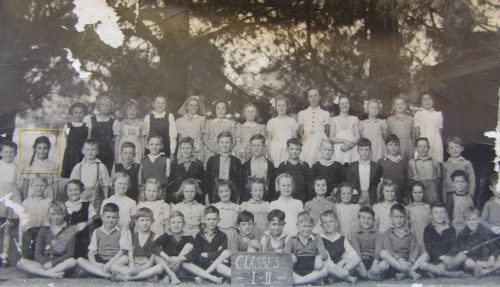
My grandfather had given me a horse, Dartmoor pony. I became quite fearless with my pony which I adored. I hated attending Bridgetown Primary School and refused to return to school.
Kangaroo Gully School
My father realised I could attend Kangaroo Gully school which was close to our farm. He constructed a bush shelter near the school which I used as a stable for my pony which I would ride to school. I love Kangaroo Gully school. There were 9 other students, we all got on well, had fun and played well together.
Everything was great until we got a new teacher. The teacher was a local girl who also rode her horse to school. Her horse was bigger than my pony and would break out of the bush shelter taking my pony with it. I spent lots of time looking for her horse and my pony — which was disruptive for schooling.
My first teacher at Kangaroo Gully used to board with parents that lived across from the school. Part of their employment conditions was that local parents had to provide board and lodging for the teachers at the bush schools.
Very few people had motor vehicles. Often only the farmers had motor vehicles. The young teachers had no money to spend, no car which is why board and lodging was part of their employment conditions.
I did not wear a school uniform. In winter I wore skirts and jumper. In summer I wore cotton frocks. I don’t think shorts and pants would have been allowed. It wasn’t long after World War II which meant clothing options were limited.
Lunch for school was a normal cut lunch from home. Which was white bread and jam or vegemite, maybe cheese and fruit.
I used to ride to school from Sunnyhurst to Kangaroo Gully School. The ride would take about 30 minutes and my father fixed up the stable so my pony was left in the stable while I was at school.
The curriculum at Kangaroo Gully school was the same as what was taught at Bridgetown primary school but all the students from Grade one through to Grade six were in the one class so the teacher needed to provide work for each grade level. World War II history wasn’t taught as we lived through it.
Students wrote on paper using pen and pencil.
I can remember a few of the Gregory children, Moore children and Goodwin children. I think my best friends were Kathy and Laura Goodwin who I later meet up with a High school at Perth Girl’s and I used to visit their farm in Gosnells when I was a teenager.
The school had an open fire for winter and the students had to bring in the wood. Cooling wasn’t needed in summer.
Snakes were occasionally spotted when riding home from school but can’t remember seeing any snakes around the school.
School was from 9 to 3. Holidays were 2 weeks in May and August, 6 weeks over Christmas. Most of the public holidays are the same as what we celebrate today.
Memorable Events
I remembers going to movies at the town hall with my school. Including the movie The Overlander, Lassie come home and My Friend Flicker.
I went to one circus with my parents. Friday was shopping day and there was often street stalls in the main street of Bridgetown.
My grandmother had a house maid. Her role was to clean the house and came several days a week.
The family had one car that was shared between the grandparents and my parents. Our car was completely enclosed where as our neighbors had canvas covered cars which weren’t completely enclosed with perplex windows.
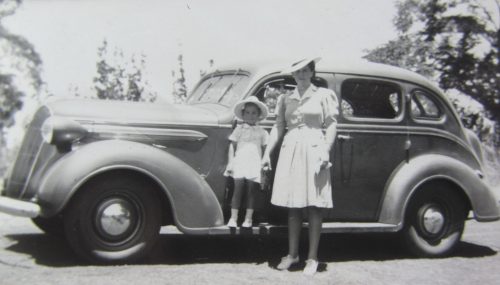
The toilet was outside the house and my job was to empty the bed pans in the morning. Sunnyhurst may have had an internal toilet but our house had an outdoor toilet that was quite a distance from the property.
In 1947 when I was 9 years old my grandfather Ern Hill had a health crisis and decided to sell up and distribute the shares of the partnership within the family. I was sad to leave Bridgetown and my friends.
Pingelly and Popanyinning Years
We moved to a leased property west of Pingelly after leaving Sunnyhurst. We had a few milking cows, my pony and a bull sent to Pingelly on a train.
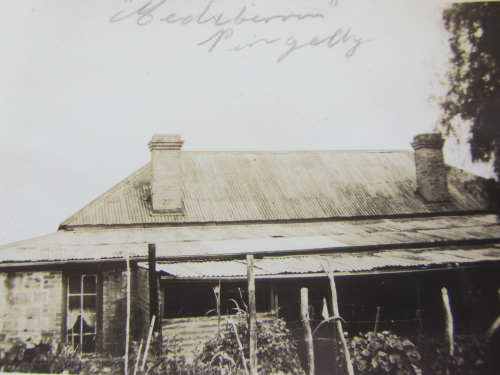
I had never been to Pingelly before. I didn’t know the farm and where it was because my father didn’t keep any riding horses for himself. I was given the job of droving the stock to the farm. I wasn’t very good at telling the difference between left and right so when my father gave me instructions I would put stickers on my hands to remember which was left and right.
I struggled living in Pingelly. It was a contrast to our life in Bridgetown. Our homes in Bridgetown had electricity and running water to a farm house in Pingelly that had neither electricity or running water. I had to walk a mile to catch the bus to school which was 8 miles away.
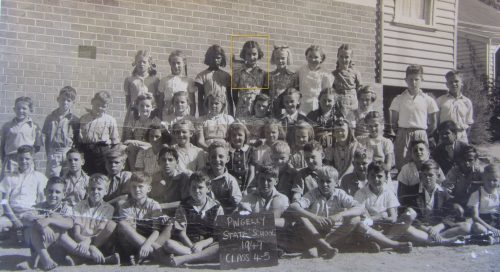
I often question the way my parents used me and came to the conclusion that children were regarded as a resource – to work around the farm. When we lived in Bridgetown we had several 14-16 year old boys (Fairbridge kids), one at a time, who worked on the property doing old jobs. The boy would live in the shed and weren’t allowed to eat with us.
In 1950 my family moved after purchasing a property east of Popanyinning.
Teenage Years
When I was 12 my mother decided that I should go away to school even though the local school went up to what is now called Year 10. I was boarded with a succession of families in Perth where I attended school. After attending High School until Junior Year I gained entry to Business College. By the time I was 16 I was living in a boarding house working and paying a third of my small income in rent. In the years between 16 to 18 I worked, studied at night and dated an endless stream of males, all of which were kept at a certain distance because neither matrimony nor motherhood had any appeal.
I had gone home during the school holidays, usually to house keep when my mother was sick or in hospital, or to work on the farm but I was not permitted to come back to live or work in the district nor would my father allow me to continue my school so I could go to University as I wished.

Married Life
When I was 17 I met my husband to be and we began living together when I was 18. This was a shocking thing to be doing in the 50’s and I had no intentions of getting married but when I told my parents that I was pregnant they suddenly remembered they had parental rights and insisted that we either get married or I cease living with my lover. Bill and I discussed this and decided that marriage would be acceptable. Bill wasn’t religious but my family insisted on a church wedding. We went through with the service but I found it ironic that the only wedding present I received from my parents was five pounds that was what the minister charged for marrying us. The maternal side of my family all told me how disgusting I was pregnant and to add insult to injury that I had married a New Australia – not very socially acceptable in the 50’s. My husband Bill had migrated from Holland with his family on the Johan Van Oldenbarnevelt arriving in Perth on 29 April, 1954.
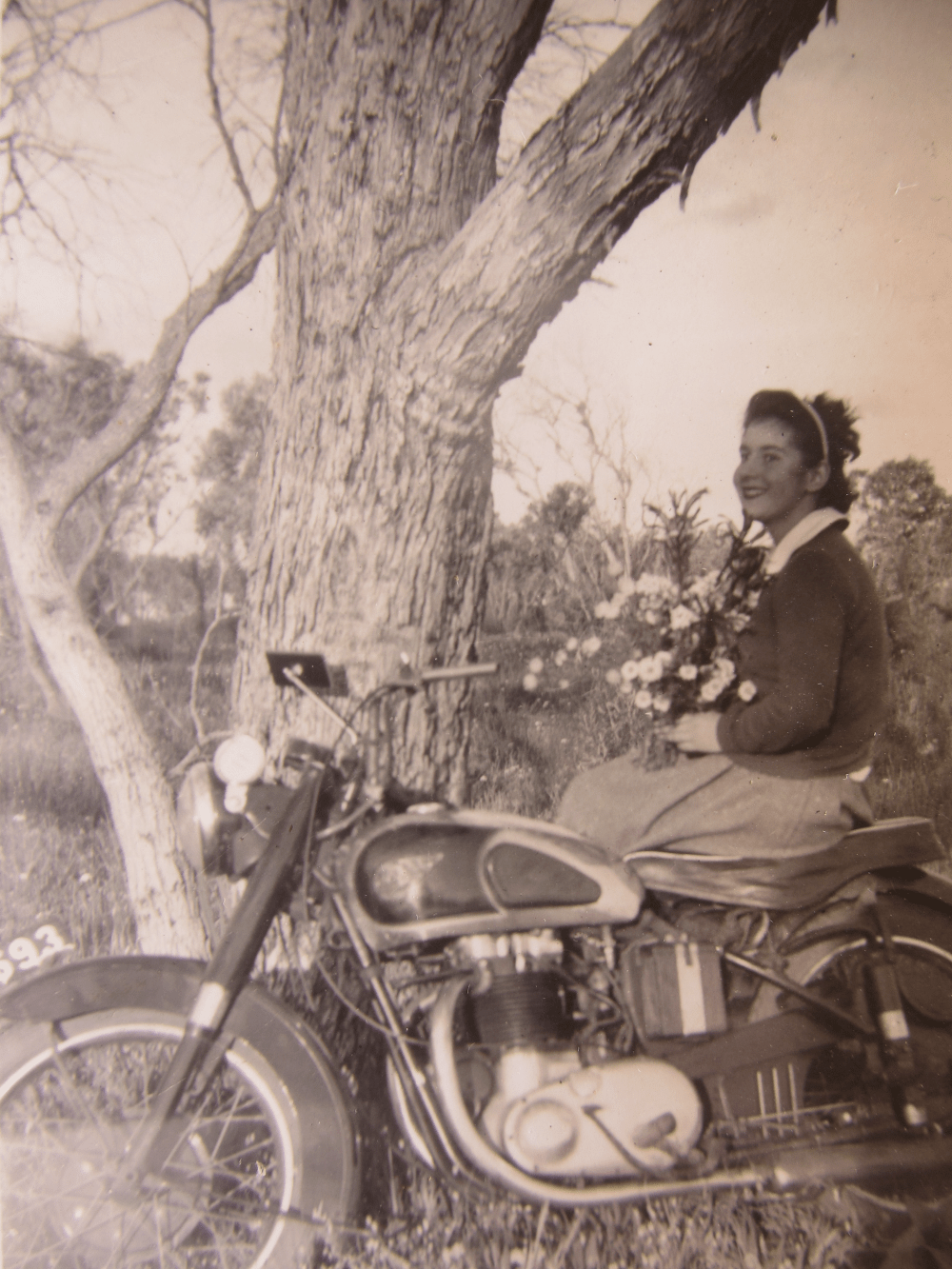
I had a difficult pregnancy complicated by pylonephritis and hypertension with never ending morning sickness. I weighed a stone less when I went to hospital to give birth than I had a year before. After very prolonged labour and further problems I was discharged 21 days later. The hospital was very short staffed and it was 3 days before I saw my baby. Helen went from the incubator to the isolation nursery due to a rash blamed on the humicrib.
I now believe the rash was probably thrush due to my earlier hospitalization and treatment. The rash I had resulted in me being returned to threater to be resutured under local, after I had failed to heal in 21 days.
During this time I had not seen Bill for almost 2 weeks because he had been sick and they thought he had the Asian Flu. Arriving home I was in shock to see he had faded to ~8 1/2 stone from ~ 12 1/2 stone; which was a lot of weight for someone who was ~ 6’4″.

We lived in a small flat and Bill tried to return to work but he kept on having severe abdominal cramps and bloody diarrhoea. I kept on insisting this wasn’t normal and after more than a year x-rays by a specialist diagnosed Ulcerative Colitis. Shortly after this the doctors also discovered that Bill had blood dyscrasia which left him with insufficient platelets to promote clotting and this caused the bleeding in the bowel.
The doctors were able to give us an explanation of Bill’s health – that he never had Asian flu but had developed a condition known as idiopathic thromobocytapaenia purpura. Occurs for no known reason and causes a platelet deficiency in the blood that means the person could bleed from any part of their mucus membrane. It often resolves spontaneously within two weeks but for some people there is no real solution – just trial and error to see what works. The doctors tried a range of cortisone treatments, diets and nothing worked. We had to give up our flat and live off social security benefits using up our savings until someone helped us apply for sickness benefits.
Bill’s parents were kind and let us live with them but it wasn’t easy for any of us as the house was over crowded and we had a teething baby. With assistance from the Almoners’ Department at Royal Perth Hospital we were able to move into our own State Housing home.
With limited financial resources we managed to purchase sufficient furniture for the new house. Our table was originally an ironing board and the only electrical appliances we had were a second hand fridge, a toaster and a blender (which was needed for Bill’s special diets). Bill’s health continued to deteriorate and the doctors recommended surgery. This brought us into conflict with his parents who blamed me, and my cooking, for his illness. Unfortunately when the specialists organized for a Dutch speaking doctor to discuss it with Bill’s parents the doctor did not explain it properly or his parent’s misinterpreted what they were told, and they decided that Ulcerative Colitis was an emotional disease and he needed to get his nerves under control. His parents wouldn’t consent to any surgery and not being over 21 meant that he needed his parents to consent to it.
Finally Bill and the doctors convinced his parents to agree to a splenectomy as they hoped removing his spleen would cure the blood disease and allow his bowel to heal. The delay meant his health had deteriorated further, the drugs had caused further complications and the operation was nearly fatal. Bill did recover and for 12 months it looked like Bill had won back his health.
Unfortunately the Ulcerative Colitis flared up again and his parents refused to allow further surgery which mean he had to have pints of blood on a regular basis. He had adverse reactions to blood he received and his quality of life diminished due to his need to take strong painkillers and to be near a toilet.
When Bill turned 21 he arranged to have the surgery. We were warned that he may not survive this surgery due to the delays, the drugs and his weight loss compromising his health. Bill told the doctors his quality of life was poor and have a bowel resection and ileostomy was better than the pain he was dealing with. Because of his health the operation was done in two stages although the doctor felt that it would be unlikely that his bowel could be rejoined.
Bill came home from hospital and built up strength to face the second operation to remove the rest of his bowel or rejoin. Life was wonderful, he was pain free except for some phantom bowel problems. He learnt what he could and couldn’t eat and looked forward to going back to work when it is all over. We talked about having another baby when he was better.
He had his second operation, the ileostomy was permanent. The wound would not heal properly and he had further surgery but a kind employer agreed to employ him despite hours spent at the hospital getting dressings changed. We were now a family of four, with our second daughter Margie born in 1962, and having all the problems every family has with an adventurous pre-schooler and a teething baby. He had complications but the pain was gone and he eventually started working again.
In 1962 my parents moved back to Bridgetown and Bill offered to give my father a hand with the move. Bill fell in love with the South West of Western Australia and asked my father to see if anyone was looking for an Electrician in the area.
Bill was offered a job and a house so we left Perth. I was surprised because I found it strange that a boy from Amsterdam should be keen to go bush but I had learnt to make myself at home wherever I went having no settled abode for 6 years. Bill loved living in the country. We built a hut in Windy Harbour on some leasehold land where we spent weekends and school holidays, while our children were going up, and later when equal wages for women came into being in the 70’s we saved and brought our own home in Manjmup.
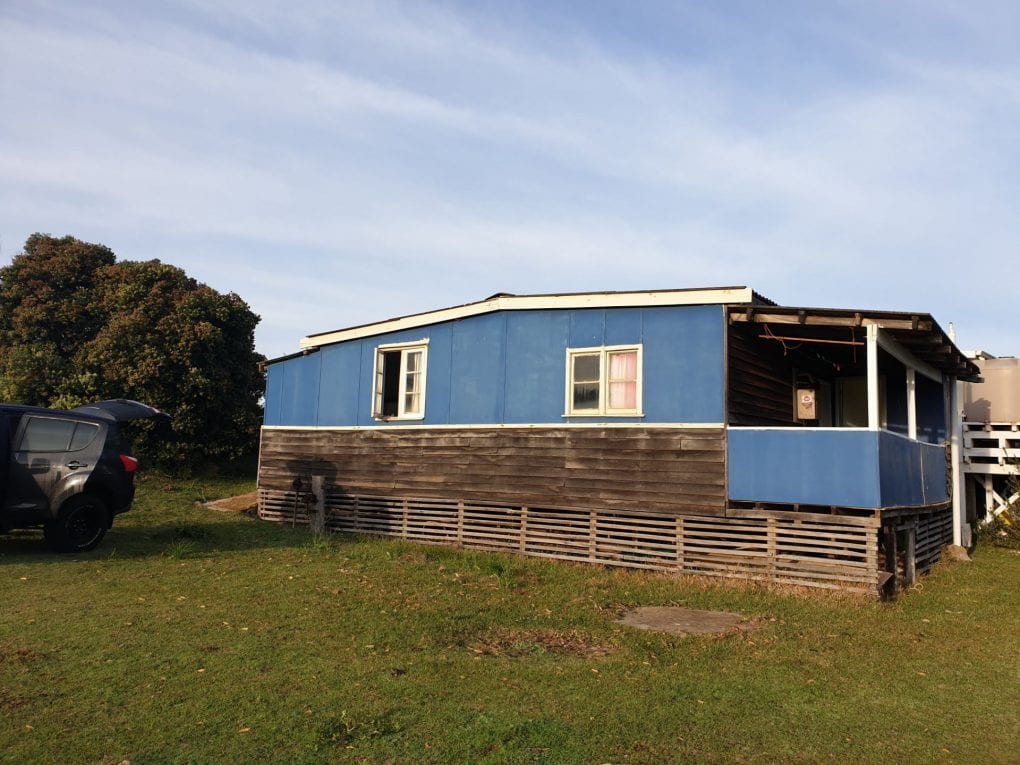
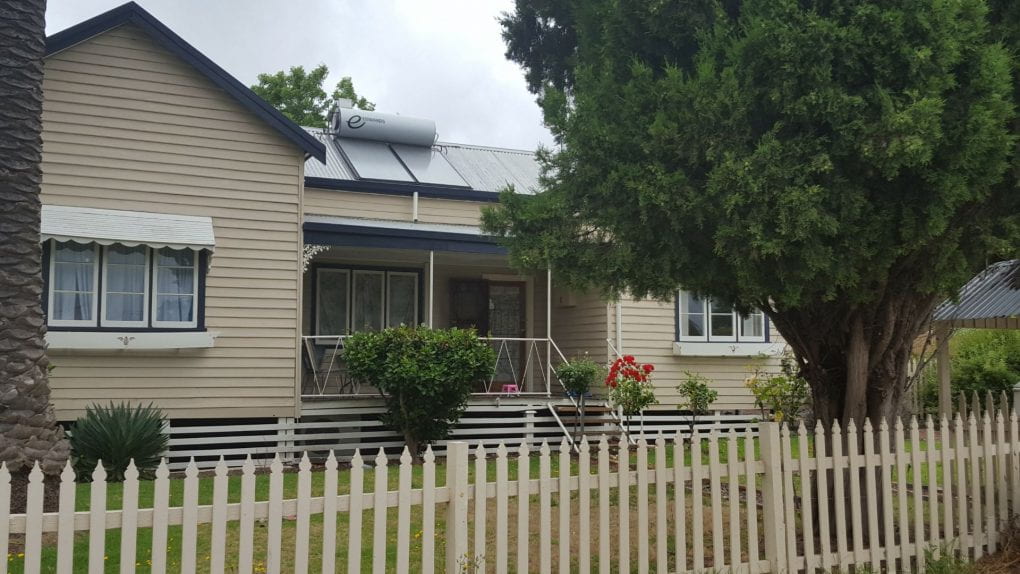
After we had been living in Manjimup for about 8 months Bill became unwell and it turned out that he was at risk of getting peritonitis as part of his operation had not healed properly and an abscess was threatening to burst into his abdominal cavity. The doctors planned plastic surgery in Perth and thought he might be home in a fortnight. After his coccyx was removed and hearing started, seven months from the time he went into hospital, Bill returned home to us and our third daughter who was three months old. Manjimup is 3 1/2 hours from Perth. We discussed baby names while he was in hospital via letter and limited phone calls.
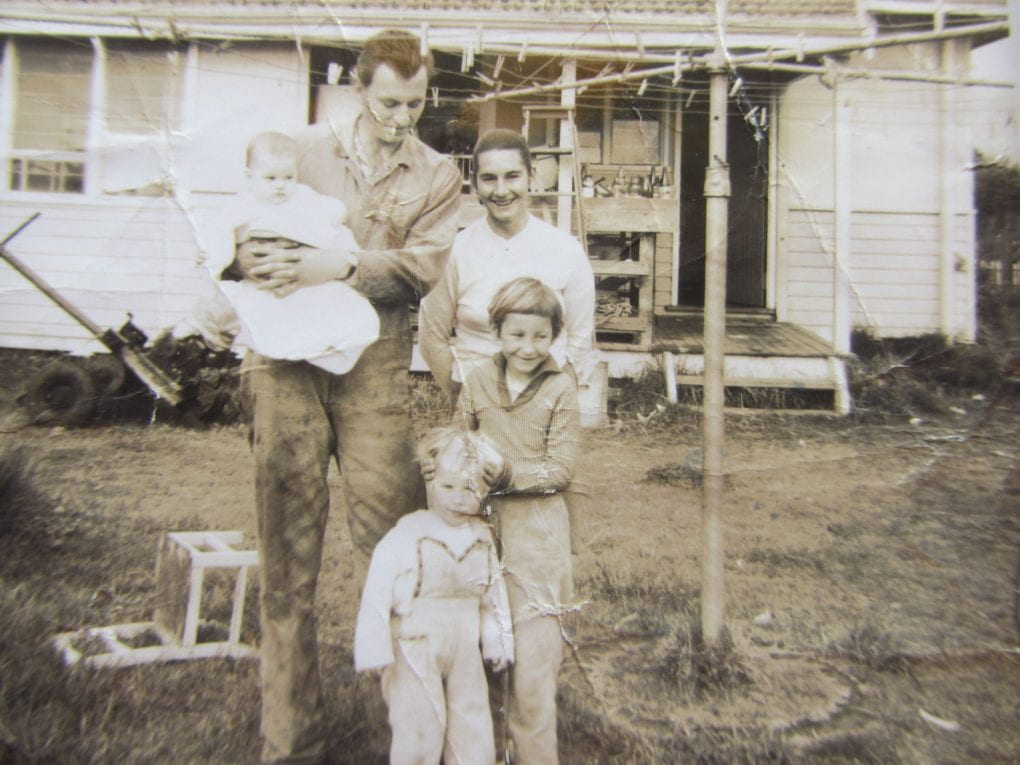
We lived a marvelous normal every day life. We explored the South West, went fishing, camping and bought our first vehicle. Bill had further surgery for a prolapsing stoma and bowel blockage due to adhesions and had complications with drug reactions.
Our children grew older and I decided to train as an enrolled nurse at the local hospital in Manjimup. The night before my final exams I came home to find him rolling around the bed in agony. I got him to hospital where the doctor thought one of the kidney’s had shut down.
Bill enjoyed his life in Manjimup but complications from his illness, surgery, pain and cardiac problems diminished his quality of life.
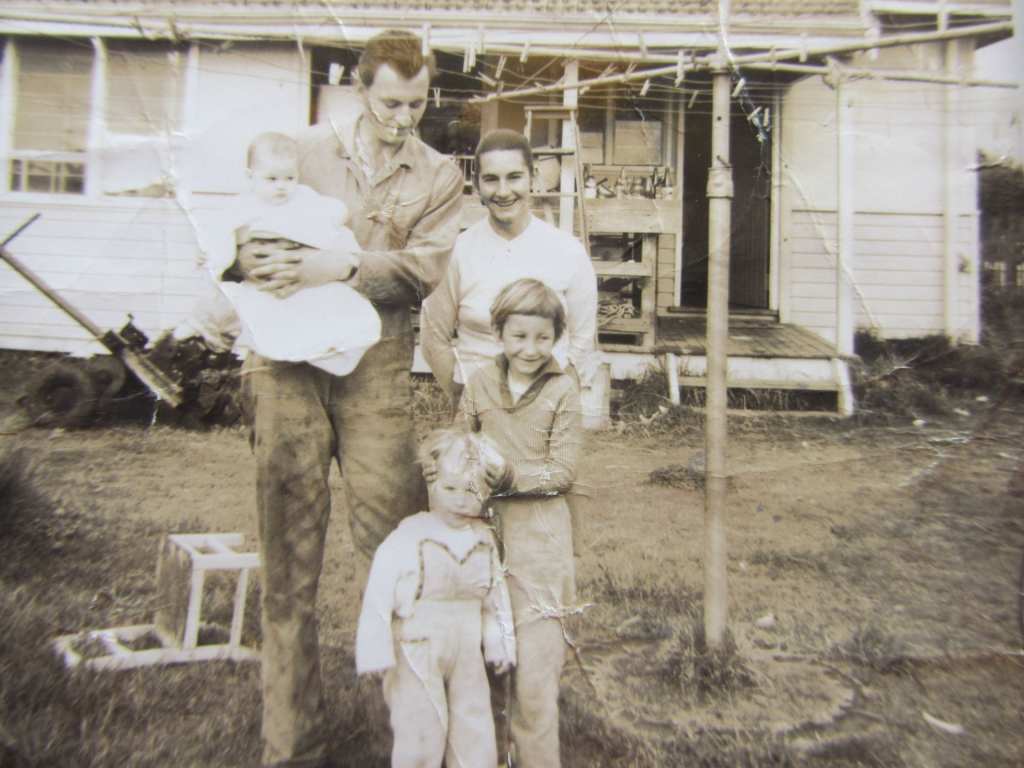
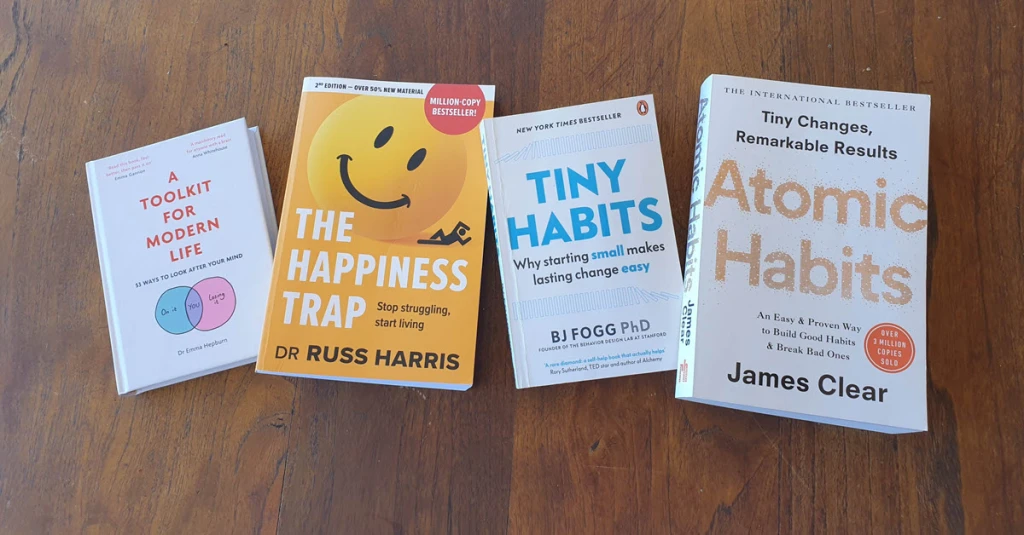
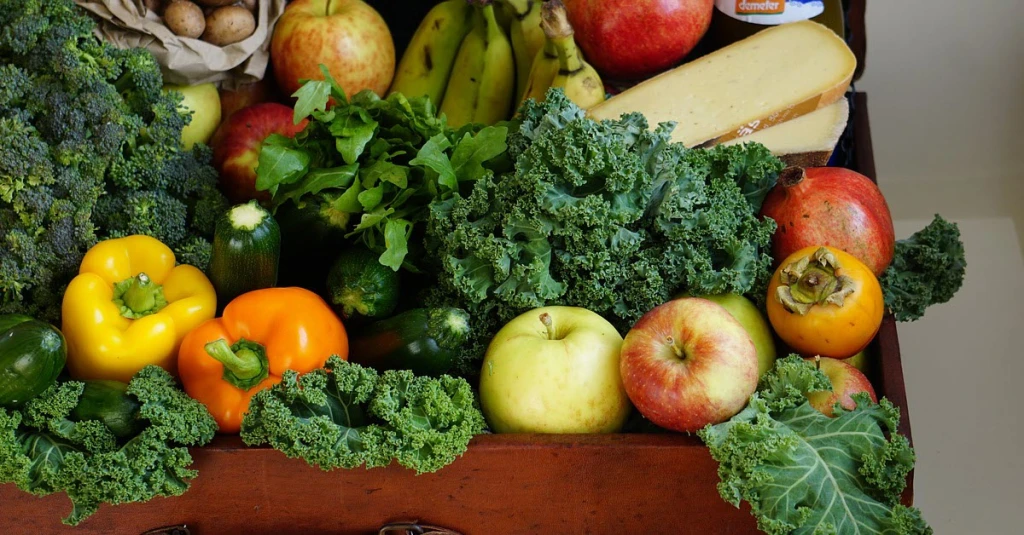
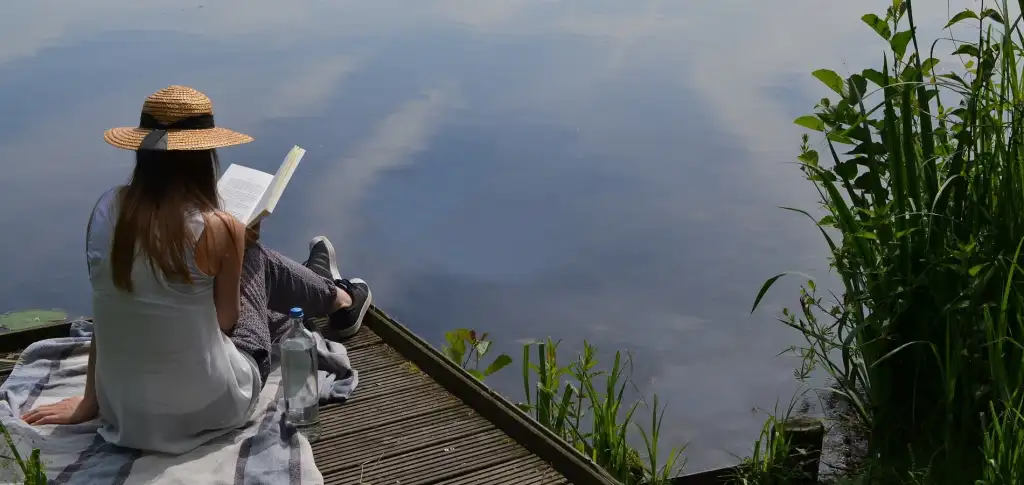
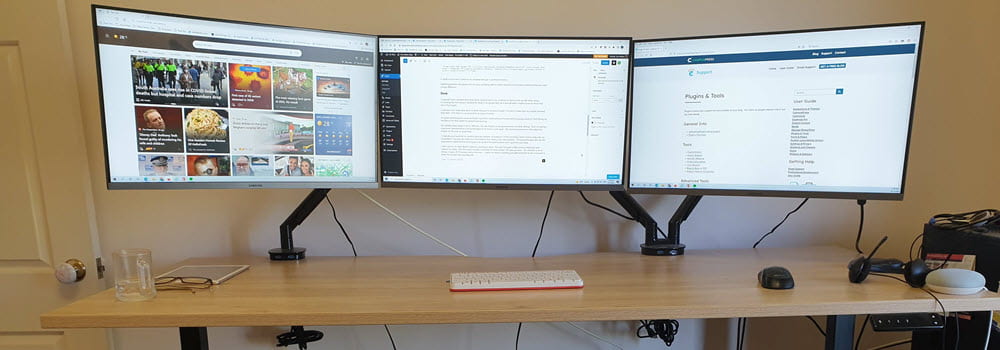
Leave a comment